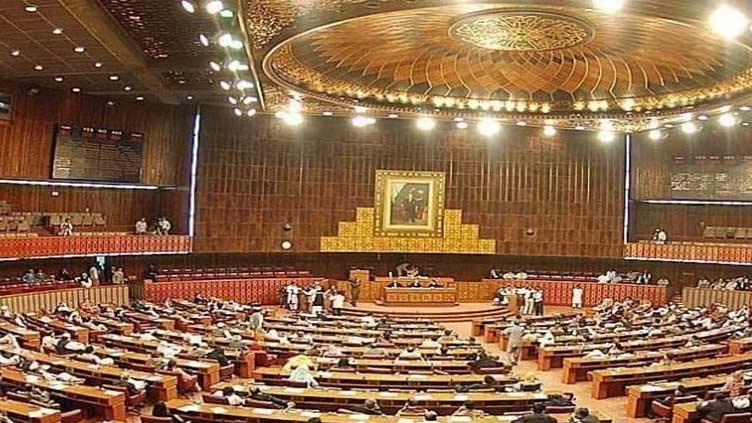by Muhammad Mohsin Iqbal
Each year, as June draws near in Pakistan, the air within the corridors of Parliament begins to thicken with anticipation. The federal budget — a crucial document that reflects the government’s priorities, aspirations, and challenges — is presented before the National Assembly during this month. Constitutionally enshrined and regulated by procedural rules, the budget is laid out before the people’s representatives who are expected to dissect its contents, critique its projections, and, ultimately, give it their assent. This annual exercise is not merely a financial ritual; it is the theatre of democracy where the fiscal vision of the nation is unveiled and contested.
From the time of Pakistan’s independence in 1947 until now, more than seventy federal budgets have been presented, with varying styles, strategies, and outcomes. From the modest initial budgets of the post-Partition years to the more elaborate and technocratic fiscal outlines of recent times, each has been both a mirror and a map — a reflection of its era’s economic realities and a roadmap for national policy.
The task of presenting the federal budget has historically rested with the Finance Minister, though on a few occasions it has been carried by the Prime Minister or an acting minister. From Ghulam Muhammad, the first Finance Minister of Pakistan, who presented the country’s first budget in the Sind Assembly Chamber, Karachi chaired by Deputy President Mr. Tamizuddin Khan on February 28, 1948, to the recent presentations by the finance heads of elected governments and interim administrations alike, the legacy is rich and telling. With the return of parliamentary democracy in 1985, budget sessions became more regular, structured, and open to greater legislative engagement. These debates have since served as a barometer of parliamentary performance and political maturity.

A comparative study of the budget sessions from 1985 to the present reveals a mixed record. On paper, the rules permit members to discuss all aspects of the budget, including its macroeconomic assumptions, taxation proposals, development allocations, and sectoral priorities. In practice, however, the content of budget speeches and debates often strays far from these core fiscal matters. While the budget is meant to be a national financial document warranting informed scrutiny, many members use the opportunity to raise local issues, express grievances against administrative excesses, or engage in political posturing.
According to the crystal-clear ruling given by the Deputy Speaker Dr. Ashraf Khatoon Abbasi during general discussion on budget in 17 June 1975 that “Any matter may be discussed by members during general discussions on the Budget”. Detailed research into the proceedings of the National Assembly from 1985 onwards indicates that, on average, less than 40 percent of the parliamentary debate during budget sessions has been directly focused on the budget itself. The remaining 60 percent often veers into discussions on political rivalries, law and order, governance failures, regional complaints, and historical reckonings. This imbalance, while at times reflective of the political pressures of the moment, undermines the technical scrutiny that the budget deserves. In years of political stability, the proportion of budget-focused speeches tends to increase slightly, while in times of political upheaval or transitions, the debates become more rhetorical and less policy-oriented.
The budget sessions of 1988, 1993, 1999, 2008, and 2018 were particularly overshadowed by political transitions, caretaker arrangements, or abrupt changes in government, resulting in more perfunctory or highly politicized budget debates. Conversely, some sessions — such as those in 2002, 2013, and 2021 — witnessed more structured and issue-based discussions, particularly when parliamentary committees and opposition parties engaged with budget documents in greater detail.
The role of leadership, too, has been significant. Speakers who ensured strict observance of the rules of debate, and finance ministers who remained present to respond to queries, helped maintain the focus on fiscal content. On the other hand, where leadership allowed the dilution of discipline, the quality of debate suffered. Moreover, the absence of technical support and budget analysis tools for most parliamentarians has further limited their ability to meaningfully engage with the figures and forecasts embedded in budget documents.
Despite these limitations, the budget debate remains one of the most significant events on Pakistan’s legislative calendar. It is the time when the opposition has the opportunity to challenge the government’s claims with facts and alternative visions, and when treasury members are expected to defend the government’s performance. It is also the most public moment for Parliament to communicate with citizens on matters of taxation, subsidies, public investment, and economic reform. In this sense, even when discussions deviate, they carry a broader democratic utility, albeit at the cost of technical depth.
As Pakistan confronts rising fiscal deficits, growing public debt, and the pressures of structural reform demanded by global financial institutions, the need for a more informed and focused budget debate becomes ever more urgent. Parliamentarians must be equipped and encouraged to treat the budget not merely as a political document but as a financial charter that impacts every citizen. The trend of political theatre must give way to financial literacy, scrutiny, and accountability. Only then can the National Assembly truly fulfill its constitutional role as the guardian of the public purse.
In reviewing the trajectory from 1985 to the present, one sees a Parliament in gradual evolution — marked by frequent diversions yet capable, at moments, of rising to its fiscal responsibilities. The budget session, if reclaimed as a time of serious deliberation, can serve as a forum for economic consensus and national direction. The challenge lies not in the rules, which already provide ample space for debate, but in the will and preparation of those who stand to speak in the name of the people.

















